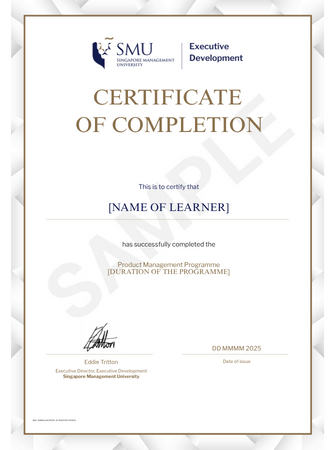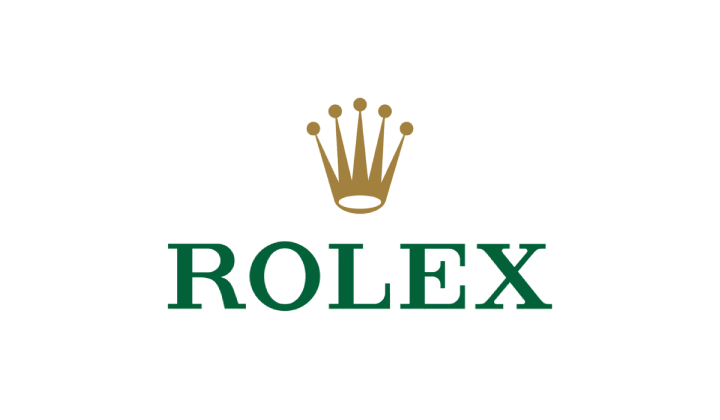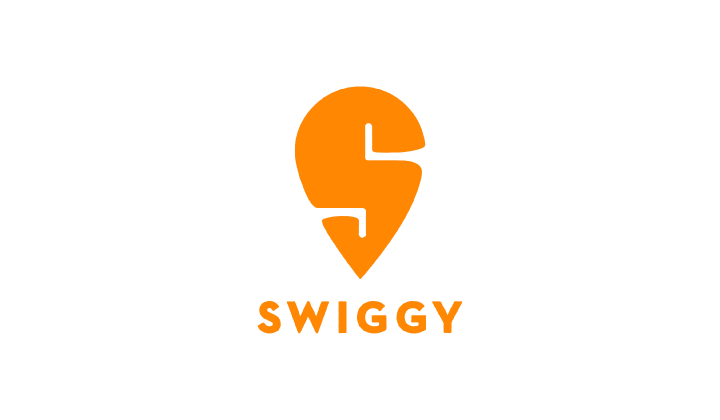
Product Management Programme
Gain product management skills that will help you optimise your organisation's end-to-end product development processes.
Lunar New Year Enrolment Benefit
As we usher in the Lunar New Year, invest in your growth and gain a competitive edge.
We’re delighted to offer an enrolment benefit of Invalid liquid data for learners enroling before Invalid liquid dataWith limited seats available, we encourage you to book your spot soon.
Programme Overview
The success of a company increasingly hinges on the effectiveness of its product management process—now more than ever, with AI redefining how products are conceived, built, and scaled. Whether you're launching new offerings or enhancing existing ones, managing the product life cycle requires both strategic leadership and data-driven agility. In fact, nearly 70% of product managers agree that product management is fundamentally a leadership role.
The Product Management Programme - Integrated with AI from Singapore Management University equips you to lead this evolution—offering the skills to manage the entire product life cycle, while also integrating AI-powered tools and frameworks that are shaping the future of product success.
$150Mn
92%
By 2025
What You Will Learn in the Programme?
Develop the product mindset needed to bring viable products (or services) to market
Define the problem a product will solve, map the customer’s journey and create user personas
Use design thinking to generate innovative ideas and solutions to design problems
Analyse strategies and frameworks for developing, marketing and selling a product
Evaluate product road mapping and prototyping decisions using various product management techniques and practices
Outline a plan to create a competitive scalable product using key product development strategies and frameworks
Develop an understanding of the different types of pricing strategies and formats in launching a new product, and how an innovative pricing strategy can be a critical differentiator in launching a new product
Mastering Product Management: From Design Thinking to Launch Strategy with SMU
Join Dr. Markus Karner as he gives you an exclusive tour of this programme. Learn to craft user-centric solutions, develop winning strategies, and guide products from concept to successful market launch.

Programme Highlights
Self-paced learning from SMU faculty, with select live sessions.
Hands-on tasks to apply product strategies and frameworks.
Exposure to key tools used across the product life cycle.
Deep dives into successful product strategies and decisions.
Learn how GenAI is transforming modern product development and decision-making.
Real-world product management scenarios and use cases.
Engage with peers on product challenges and insights.
Interactive live online sessions with SMU faculty.
Apply your product management learnings in the form of a capstone project.
Masterclasses on AI and gen AI by industry experts.
Note:
The programme highlights mentioned above are subject to change based on faculty availability and the desired outcomes of the programme.
*This programme is primarily self-paced online with some live sessions conducted by programme faculty. The availability of post-session video recordings is at the discretion of the faculty members, and Emeritus or the institute cannot guarantee their availability. We have a curated panel of distinguished industry practitioners who will conduct weekly live doubt-clearing sessions.
**Assignments will be graded by industry practitioners who are available to support participants in their learning journey, and/or by the Emeritus grading team. The final number of quizzes, assignments, and discussions will be confirmed closer to the start of the programme.
Programme Modules
Definition of Product Management
Gartner View On Product Management
General Product Management Skills
Specific Product Management Skills in Software, Technology, Life sciences
Role of a Product Manager
Case Study Discussion: Kindle Fire
Product development in the digital age
Designing customer centric products and design thinking
Product opportunity gap and minimum viable product
Lean and agile product development methods
Pricing strategies & business models
Live Session:
AI in Product Discovery and Prioritization
Managing product life cycle
Product Portfolio Strategy
Portfolio Management
Cumulative Demand Growth Life Cycle
Value Creation
Empathising with ethnography
Introduction to design thinking
Prototyping and testing
Ideating by numbers
The value proposition
Live Session:
AI for Ideation, Personas and Hyper-Personalization
How to prepare a PIC
Preparing a product concept
The problem-find-solve approach
Live Session:
Agentic AI for Product Roadmapping and Strategic Execution
Introduction & warm-up interactive individual exercise with Miro
What’s UX? (Roles, Day in Life of UXers, Current Trends in the field)
On-boarding Figma
Figma follow-along activity
Live Session:
UI/UX Design for Product Managers
Traditional and Lean product development processes
Agile scrum philosophy and methodology
Agile and Design Thinking
Combining best practices
Tools Workshop:
Live online tool workshop from faculty
Strategic importance of pricing
Value-based pricing
Multidimensional value
Creating value-based pricing
Business pricing models:
Product as a Service (PaaS)
Freemium Pricing Model
Users as Product Model
Subscription and Value Chain Delinking Model
Walled Garden Mode
Live Session:
AI for Dynamic Pricing and Financial Modeling
Introduction to Positioning: Direct Competitive Comparison, Category Shifting, Uniqueness
Preparing for Positioning
Firm Considerations
Reflecting Strategies with examples
Introduction to Product Life Cycle (PLC):
Profit Considerations of PLC
PLC Models
Growth, maturity and decline considerations.
Importance of Pricing from a consumer and financial perspective.
Different prototypes of pricing strategies and a discussion of their advantages and limitations.
Live Session:
Agentic AI for Product Operations and Workflow Automation.
Growth Hacking Strategy
Strategy as Position: 5 Forces analysis
Concept of causal reasoning
Effectuation
Principles of effectuation
Live Session:
Growth Hacking - Live Session with Professor David Gomulya
2 Hours per session
Session 1: Asana AI and Notion AI
Session 2: SQL (SQLAI) and Mixpanel
Introduction to Generative AI
Generative AI Models
Working with Generative AI
Gen AI for Product Management
Live Session:
Gen AI in Product Management
Note:
*This programme is primarily self-paced online with some live sessions conducted by programme faculty. The availability of post-session video recordings is at the discretion of the faculty members, and Emeritus or the institute cannot guarantee their availability. We have a curated panel of distinguished industry practitioners who will conduct weekly live doubt-clearing sessions.
**Assignments will be graded by industry practitioners who are available to support participants in their learning journey, and/or by the Emeritus grading team. The final number of quizzes, assignments, and discussions will be confirmed closer to the start of the programme.
Capstone Project
Further develop your product management experience and portfolio.
This in-depth Capstone Project will challenge you to apply the skills and techniques gained in Week 4 to Week 9 to a real-world product development scenario.
Programme Faculty

Lee Kong Chian Professor of Marketing, Director, Retail Centre of Excellence Singapore Management University

Academic Director, Executive Development

Lee Kong Chian Professor of Operations Management; Deputy Dean (Programmes); Academic Director, PhD in Business (General Management)

Professor of Marketing; Director, Centre for Marketing Excellence; Academic Director, LVMH-SMU Asia Luxury Brand Research Initiative

Senior Lecturer of Strategic Management; Academic Director, ITI; Course Coordinator, ITI track

Full-time Faculty Associate Professor of Communication Management (Practice)

Full-time Faculty, Associate Professor of Strategy & Entrepreneurship; Academic Director, Master of Science in Innovation
Note - Programme Faculty for the live sessions might change due to unavoidable circumstances, and revised details will be shared closer to the programme start date.
Who Is This Programme For?
The programme is designed for both tech and non-tech professionals. Representative roles and industries that can benefit include:
Industries: IT Product & Services, Banking and Financial Services, Pharmaceuticals, Consulting and beyond
Functions: Technological Management, General Management, Operations, and Consulting
This programme is ideal for professionals who are looking to develop new products/services, to increase revenues and profitability, conceptualise disruptive business models with a product-centric approach, manage product portfolios and corporate strategy, and identify more market opportunities for business growth.

Testimonials


Past participants of Emeritus work at

Note: All brand, product and company names are trademarks™ or registered® trademarks of their respective holders. Use of them does not imply any affiliation with, endorsement by, or association of any kind between them and programme owners.

Certificate
Upon successful completion of the programme, participants will be awarded a verified digital certificate by Singapore Management University.
Note:
All certificate images are for illustrative purposes only and may be subject to change at the discretion of Singapore Management University.
*Emeritus or the institute does not guarantee availability of any live faculty session recordings.
Emeritus Career Services
Stepping into a business leadership career requires a variety of job-ready skills. Below given services are provided by Emeritus, our learning collaborator for this program. The primary goal is to give you the skills needed to succeed in your career; however, job placement is not guaranteed.
Emeritus provides the following career preparation services:
Resume building videos
Interview preparation videos
Linkedln profile building videos
Interview guidebooks
Glossary of resume templates
Please note: SMU or Emeritus do not promise or guarantee a job or progression in your current job. Career Services is only offered as a service that empowers you to manage your career proactively. The Career Services mentioned here are offered by Emeritus. SMU is not involved in any way and makes no commitments regarding the Career Services mentioned here
The Learning Experience
What is it like to learn with the learning collaborator, Emeritus? More than 300,000 professionals globally, across 200 countries, have chosen to advance their skills with Emeritus and its educational learning partners. In fact, 90 percent of the respondents of a recent survey across all our programs said that their learning outcomes were met or exceeded. All the contents of the course would be made available to students at the commencement of the course. However, to ensure the program delivers the desired learning outcomes, the students may appoint Emeritus to manage the delivery of the program in a cohort-based manner during the course period the cost of which is already included in the overall Course fee of the course. A dedicated program support team is available 7 days a week to answer questions about the learning platform, technical issues, or anything else that may affect your learning experience.
FAQs
Yes, this product management course is designed for both tech and non-tech professionals. It teaches a structured approach to product strategy, development, and portfolio management, using real-world examples and interactive sessions to guide participants through the end-to-end product lifecycle.
While rooted in SMU’s globally recognized academic ecosystem, this programme stands out among management courses in Singapore by offering a product-centric, digital-first approach. With a fully online format and global cohort, it delivers practical frameworks in design thinking, agile development, and business strategy—relevant for professionals around the world.
Yes, upon successful completion of the programme and capstone project, participants will receive a product management certificate from Singapore Management University, validating their expertise in product leadership and innovation.
While not a traditional project management course online, this programme covers agile and lean development practices, Jira and Trello usage, and product lifecycle management—ideal for those managing product workflows in dynamic environments.
The product management training includes live faculty sessions and industry expert sessions. Participants also gain hands-on exposure to tools like Figma, Miro, Whimsical, Asana, and real-world case studies from companies like Adobe and Swiggy.
This programme stands out among product development courses by combining structured modules on MVPs, customer personas, UI/UX, and pricing models with hands-on training in prototyping tools and real-world product testing scenarios.
Yes, the programme is among the best product management courses for tool-based learning. It teaches high-demand platforms like Jira, Figma, Miro, and Trello, helping participants manage end-to-end product development efficiently.
Yes, this is a forward-looking digital product management course that covers product strategy in the digital age, customer-centric design, lean innovation, and digital disruption, with examples from companies like GoPro, Nike, and Nokia.
Absolutely. As a product strategy course, this programme includes modules on portfolio planning, pricing innovation, positioning, and lifecycle management—empowering professionals to create scalable, market-ready product roadmaps.
The optional generative AI module introduces participants to foundational GenAI models, tools, and applications relevant to product development. It includes a masterclass on the latest innovations and use cases but does not affect final evaluations.
Early registrations are encouraged. Seats fill up quickly!
Flexible payment options available.
Starts On



























